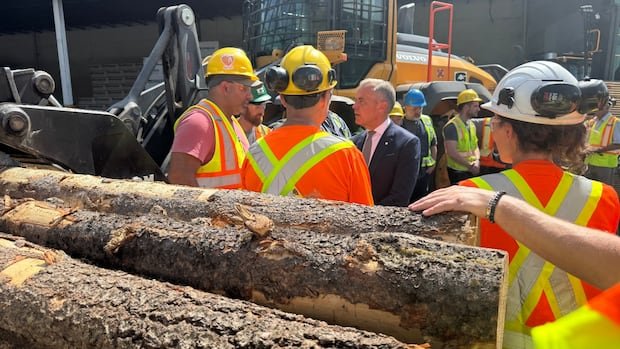The United States has raised countervailing duties on Canadian softwood lumber to 35.19 percent. The decision, announced by the U.S. Department of Commerce on Friday, was met with criticism from industry and political leaders in British Columbia and Ontario. The move was described as “absurd and reckless” by B.C.’s Forests Minister Ravi Parmar, who highlighted the negative impact on affordability in both countries.
Parmar, speaking to CBC News, emphasized that these tariffs harm Canadian forestry workers and ultimately burden U.S. consumers seeking to build homes. The B.C. Council of Forest Industries and the B.C. Lumber Trade Council expressed concerns over the detrimental effects of these duties on workers and construction companies in both nations.
The Ontario Forest Industries Association also echoed these sentiments, referring to a report that revealed how tariffs had increased the cost of building a single-family home in the U.S. The ongoing dispute over softwood lumber stems from differing perceptions on fair trade practices between the two countries.
Despite past legal victories, Parmar noted the current challenge of dealing with a president who disregards established laws. The industry in Canada, particularly in British Columbia, has suffered from job losses due to previous duties, affecting access to U.S. markets. In response, Prime Minister Mark Carney recently announced over $1.2 billion in support to aid in market diversification and retraining efforts.
The funding is expected to benefit the forestry sector in British Columbia significantly, as the province is a key player in the industry. While the financial assistance will provide some relief, there is a growing emphasis on reducing dependency on the U.S. market for long-term sustainability.

